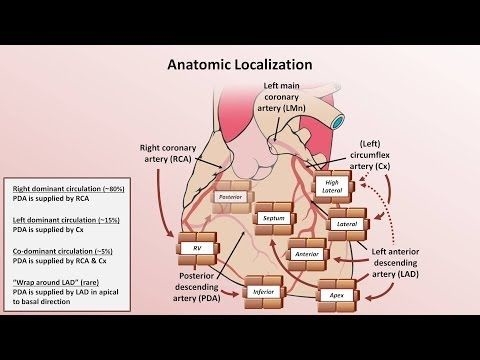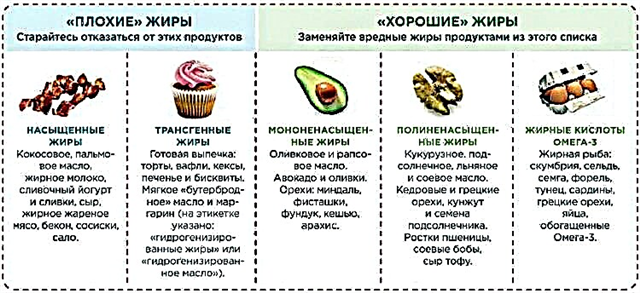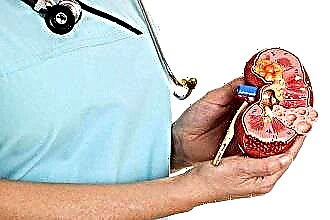Allergic tracheitis is a non-infectious inflammation of the tracheal mucosa, provoked by an inadequate response of the immune system to allergens. Respiratory disease develops under the influence of two factors: sensitization (increased sensitivity of the body to allergens) and direct contact with antigens - dust, polluted air, pollen from plants, animal hair, etc.
Penetrating into the respiratory system, allergens are absorbed into the tracheal mucosa. Immune cells begin to attack the penetrated antigens and release histamine. This substance belongs to the mediators of inflammation, therefore, in the places of its localization, soft tissues begin to inflame and swell, as a result of which a person's well-being worsens.
Clinical manifestations in adults
 Symptoms of allergic tracheitis are not much different from the signs of the development of ARVI. Allergens that have penetrated the respiratory tract cause pathological reactions, as a result of which the patient's health condition worsens. The main manifestations of the disease in adults include:
Symptoms of allergic tracheitis are not much different from the signs of the development of ARVI. Allergens that have penetrated the respiratory tract cause pathological reactions, as a result of which the patient's health condition worsens. The main manifestations of the disease in adults include:
- burning sensation in the throat;
- labored breathing;
- spastic cough;
- lacrimation;
- chest pain;
- shortness of breath.
The discomfort is aggravated by swallowing, eating and talking. Due to the swelling of the mucous membranes, coughing attacks become more frequent, causing respiratory failure. To reduce tracheal irritation, a person instinctively begins to breathe shallowly. However, the lack of oxygen in the body causes nausea, cyanosis of the lips, tachycardia, etc. Against the background of severe edema of the mucous membranes, temporary loss of voice (aphonia) is not excluded.
If the source of the allergy is not eliminated, tracheitis symptoms will only worsen over time. Swelling of the mucous membranes can lead to tracheal stenosis and, as a result, asthma attacks. In case of untimely assistance, the patient may lose consciousness and suffocate.
Clinical manifestations in children
It is worth noting that the symptoms of allergic tracheitis in young children are almost the same as those of whooping cough.
Therefore, in the event of a spastic dry cough in a child, you need to contact a pediatrician and undergo an appropriate hardware examination. Very often, allergies are accompanied by a slight increase in temperature, so many parents begin to treat their children with cold remedies.
In the absence of proper treatment, allergy symptoms only increase. The child becomes whiny and irritable, may refuse to eat and sleep poorly. Coughing fits most often occur during crying, laughing, and breathing deeply. Children aged 2 years and older complain of sore throat, chest pain and shortness of breath.
Delayed treatment of allergic tracheitis entails the development of tracheobronchitis and bronchopneumonia.
As a rule, children are more likely to tolerate allergies than adults. This is due to the imperfection of the immune system and increased sensitization of the body. Edema and inflammation of tissues reduce local immunity, therefore, against the background of tracheitis, infectious diseases can develop in children - bacterial pharyngitis, laryngitis, tonsillitis, etc.
Treatment principles
How to quickly eliminate the symptoms of allergic tracheitis? Before using pharmacy products, it is necessary to eliminate allergens and possible provoking factors that cause inflammation of the trachea. After that, the patient must undergo etiotropic therapy, which consists in taking antiallergic (antihistamines) drugs.
Treatment of inflammation and edema in the respiratory tract involves the use of anti-inflammatory drugs of systemic and local action. If the body temperature rises to febrile levels (more than 38 ° C), antipyretic drugs are prescribed. The duration of therapy and the dosage of pharmaceutical agents should be determined only by the attending physician. Improper use of medications can aggravate the patient's condition and cause complications.
You can stop a dry spastic cough with antitussives. But if phlegm is separated from the airways during coughing, mucolytics will help speed up the process of its elimination, i.e. expectorant drugs. Physiotherapy procedures are no less effective in the treatment of allergic tracheitis. It is possible to restore tissue trophism and eliminate puffiness while undergoing a course of UHF therapy.
Antihistamines
Antiallergic agents significantly reduce the body's sensitivity to the action of allergens. They suppress the activity of histamine receptors, therefore, when they are used, inflammation in the tracheal mucosa regresses very quickly. Antihistamines are drugs of etiotropic action that must be taken first of all when allergic reactions appear.
 It is worth noting that the treatment of children with antiallergic drugs should be monitored by a specialist. The components of some drugs can affect the nervous system and cause inappropriate behavior in a child - aggression, depression, anxiety, etc. Therefore, when treating young children, it is recommended to use 2nd and 3rd generation antihistamines. They practically do not cause side effects and drowsiness.
It is worth noting that the treatment of children with antiallergic drugs should be monitored by a specialist. The components of some drugs can affect the nervous system and cause inappropriate behavior in a child - aggression, depression, anxiety, etc. Therefore, when treating young children, it is recommended to use 2nd and 3rd generation antihistamines. They practically do not cause side effects and drowsiness.
To stop the symptoms of allergic tracheitis, you can use:
- Fenistil;
- Loratadin;
- LauraGeksal;
- "Tsetrin";
- "Letizen".
Timely treatment of allergies with antihistamines allows you to eliminate the swelling of the trachea, sore throat and a suffocating cough within 2-3 days. Very often, tracheitis occurs against the background of allergic rhinitis. To facilitate nasal breathing, it is advisable to use antiallergic drugs in the form of nasal drops - "Allergodil", "Levocabastin", etc.
Mucolytic agents
Antitussives and expectorants are the most effective medicines to relieve coughing attacks.
Treatment with antitussives is carried out only with an unproductive cough. In turn, expectorants are prescribed to dilute and promptly remove phlegm from the bronchi and trachea.
In pediatric practice, non-narcotic herbal remedies are used in the treatment of allergic tracheitis. They do not cause side effects or strain on the liver. The safest mucolytics include:
 "Travisil";
"Travisil";- "Doctor Mom";
- "Gerbion";
- "Stopussin-Fito";
- "Tussamag";
- Amtersol.
Also, cough treatment can be carried out with the help of breast fees, which include medicinal herbs. For the preparation of infusions, it is best to choose herbal remedies, which include coltsfoot, oregano, marshmallow root, chamomile, calendula, elecampane and plantain. Inhalation with expectorant drugs accelerates the liquefaction of mucus, making a dry cough productive. Ambroxol, Bronchoxal and Flavamed are used as preparations for inhalation.
NSAIDs
Nonsteroidal anti-inflammatory drugs interfere with the synthesis of chemicals that lead to tissue inflammation. They block the production of prostaglandins, thereby reducing the swelling and hyperemia of the trachea. NSAIDs have a pronounced antipyretic and analgesic effect, therefore they are often used to treat respiratory diseases, in particular allergic tracheitis.
Many anti-inflammatory drugs contain paracetamol, which does not cause erosive changes in the gastrointestinal mucosa. For this reason, it is best to choose from over-the-counter drugs those that contain paracetamol:
- Diflunisal;
- Panadol;
- Ibuprofen;
- Flurbiprofen;
- "Ketoprofen".
Paracetamol NSAIDs can be used to treat pregnant women and preschool children.
Symptomatic medications quickly relieve tracheal pain, fever, malaise, and discomfort when swallowing. In addition to allergic tracheitis, they can be used to treat infectious respiratory diseases caused by microbes and viruses.

 "Travisil";
"Travisil";

